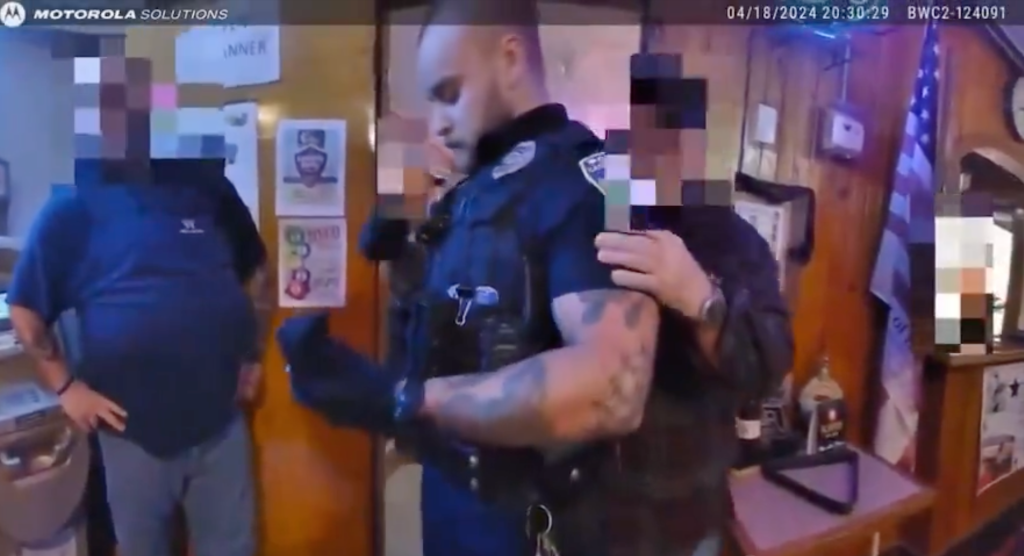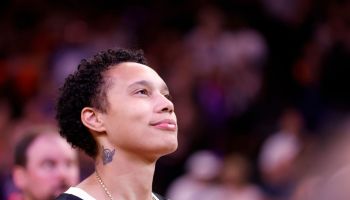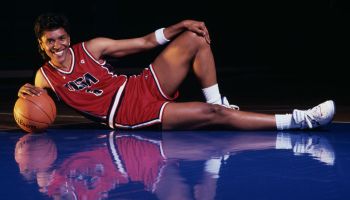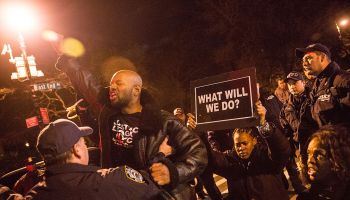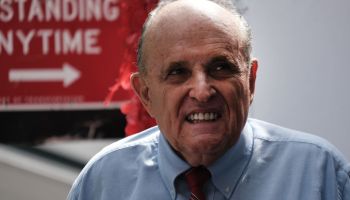The MLK Day Brotherhood Awards are NewsOne’s annual celebration of five important Americans who are continuing the work of Martin Luther King, Jr. — especially in the realm of interpersonal, cross-racial, and cross-ethnic understanding.
Our honorees are the bridge builders and the nation healers.
CHECK FOR MORE HONOREES AS THEY ARE REVEALED BEFORE MLK DAY HERE.
——————
Name: Aisha al-Adawiya
Age: 67
City of Residence: New York City
Occupation: Director and Founder of Women in Islam, Inc.
Her Work: al-Adawiya has been active in interfaith-based activism in New York City and the world for more than three decades. While her organization focuses on strengthening the role and voice of women in Islam, al-Adawiya has been very active in defending Muslims against Islamophobia and promoting interfaith unity in New York City.
On Her Brotherly Walk With Dr. King:
The best way to address brotherly (and sisterly) love is to begin in our own families. We have to be the ones to model that for our own constituencies, first of all. If I’m sitting a room and I hear people making racist statements, I will not sit quietly by, but I will speak directly to it. You don’t get to do that in my presence. And it doesn’t always have to be confrontational. But if you’re saying bigoted things about other people not present, I always think that when I leave you could say the same things about me. So let’s not do that. And try to think, “Why are we doing that?” And as people of faith, whatever our faiths are, we must ask, “What are our higher callings? Is this something our spiritual elders would encourage us to do?”
I also think we have to start teaching our children at a very young age because I am finding all too often that, for the younger generation, religion seems old-fashioned and tradition is a dirty world. We must develop a conversation, a narrative that will resonate with our young people who think, “I’m not sitting in the room to hear this old man or woman read the same old passages from whatever scripture.” So brotherly (and sisterly) love has to be meaningful and engage our youth wherever they are because today they are targeted and bombarded with an unprecedented amount of toxic information. So we have to be the first one in our family, in our environment, in our circle to say, “Not on my watch. You don’t get to do that in my presence.”
Much of my work in New York City to continue Dr. King’s mission of brotherly (and sisterly) love between Muslims and people of other faiths and communities is to ensure that Muslims extend that same love to each other. The tragedy of Sept. 11 not only drew religious and ethnic hatred towards Muslims; it unearthed uncomfortable stereotypes various Muslims held towards other Muslims. More specifically, many Muslims who immigrated to the United States held stereotypes of African-American Muslims that they could comfortably live with. That is, until the Towers fell.
Nobody wants to identify with the underdog, the disenfranchised. So this notion of privilege associated with whiteness is what many new immigrants actively buy into, even though they look like us. But this is not unique to Muslims coming from Muslim majority countries. It is the typical attitude that people bring when they come to America seeking advantage, a better way of life.
But some of the toughest work I have as an activist in the Muslim community is to convince them they no longer have this “advantage.”
Part of what we try to say is ‘your honorary status associated with white priviledge after 911 was taken away.’ Many people now get that and understand the new reality that we all face. Still many continue to say, ‘Well, they don’t know us, they don’t know about Islam and Muslims.’ And we say,’ they do know us.’ You don’t know us.’ Many of us have been here for a very long time, but your choice was not to engage with us, the African-American Muslims.
Encouragingly, relations between the various Muslim communities in New York have significantly improved over the years, and much work remains to be done. But part of our mission to continue Dr. King’s work is to promote self love, that before we ask others to accept us , Muslims must first learn to love and accept each other.
Inspiration: Malcolm X
On How She Thinks We Can Continue The Work Of MLK:
Go to something that you know is out of your box. Go meet some people. One of the very effective ways I have found in terms of breaking down the “us and them” is to create these environments where people can work together on concrete issues that are common to everyone. And it doesn’t just have to be, “Oh, there’s this poor African somewhere in Africa starving. There are some real social justice issues right here at home that need to be addressed and we all need to come together and say, “This is not OK.”
I think, first and foremost, [we need] to be brave enough, strong enough and honest enough with ourselves to say, “Even if I am the only one standing, I will be the first one to speak up.”
Dr. King’s message was not just for black folks. Dr. King’s message was a universal message for everybody. And it called on everybody to acknowledge any deficits in our being, in our innermost selves. To look at those squarely in the face and acknowledge them and then get rid of them. And then you build this beloved community that we talk about because, in order to do that, you have to rid yourself of the noxious toxins that you have been living with for a very long time. Those toxins being our (negative) perceptions, our attitudes, our actions.
